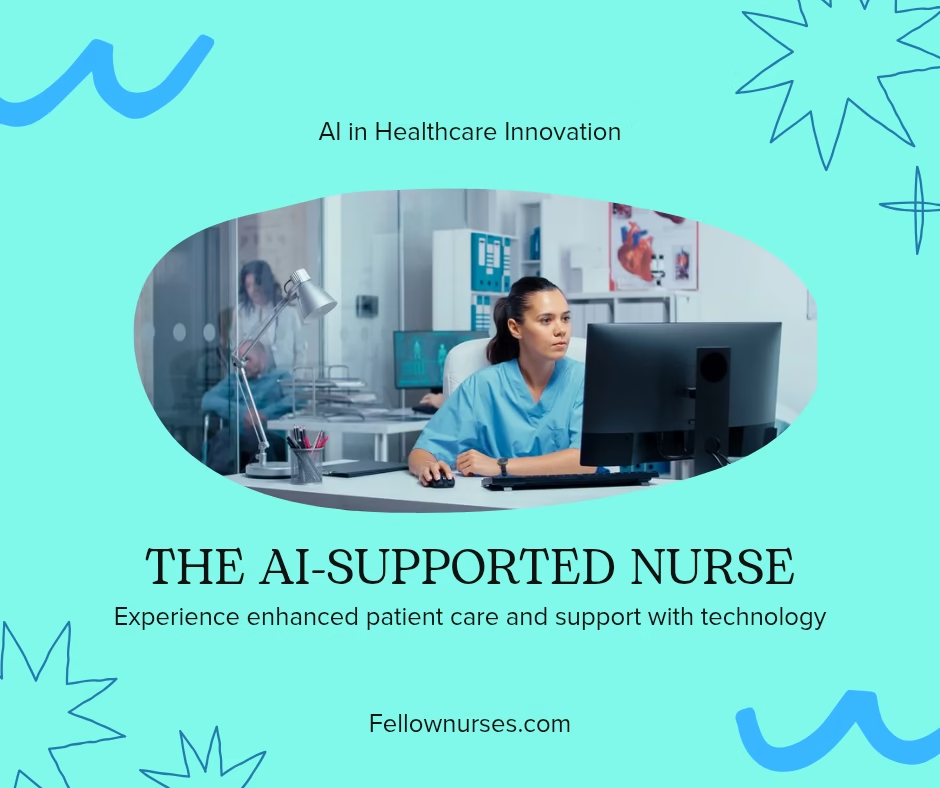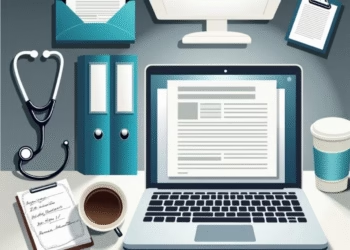How AI is Transforming Nursing: The Role of Artificial Intelligence in Healthcare Without Replacing Nurses
Fellow Nurses Africa || 02, June, 2026.
You were busy attending to nearly every patient in the ward, barely finding time to sit, when you suddenly remembered—you hadn’t checked the patients’ vital signs. A glance at the almost-full eighteen-bed ward left you wondering where to begin. As you tried to strategize, two more patients were wheeled in, filling every last bed space.
Every nurse has had moments like this—stressful, exhausting, and often overwhelming. When done without adequate support, the result is usually brain drain, burnout, and eventually a loss of enthusiasm for the profession.

But there’s hope: Artificial Intelligence (AI) is revolutionizing the healthcare industry and providing much-needed support to nurses.
What is AI in Healthcare?
Artificial Intelligence (AI) refers to computer systems designed to perform tasks that usually require human intelligence—such as decision-making, data analysis, and problem-solving.
In healthcare, AI is not here to replace nurses but to support, streamline, and optimize the nursing profession.
Ways AI Supports Nurses in Daily Practice
1. Electronic Health Records (EHRs)
AI-powered EHR systems help keep patient records organized, accessible, and secure. Nurses no longer need to worry about lost folders or handwritten notes. Digital records can be accessed quickly—even years later—and help reduce clerical workload.
2. Vital Signs Monitoring
AI-integrated vital signs monitors take accurate readings quickly and efficiently. Some are even portable, allowing patients to monitor themselves at home. This frees up nurses to focus on more critical care needs.
3. AI Diagnostic Tools
AI-powered robots and tools assist in early diagnosis by identifying health concerns faster and more accurately. Early detection leads to better patient outcomes and allows nurses to provide more targeted care.
4. Telehealth Technology
Telehealth platforms let nurses provide virtual care to patients anywhere in the world. This reduces hospital congestion and increases access to healthcare, especially in underserved areas.
5. Health Monitoring Apps
AI health apps allow patients to track their own health metrics and send reports directly to their healthcare providers. Nurses can use these updates to deliver timely interventions.
AI is a Tool, Not a Threat
Artificial Intelligence is meant to support nurses, not replace them. However, if we hand over all responsibilities to machines, we risk becoming obsolete in our own profession.
How Nurses Can Stay Relevant in the AI Age
To thrive alongside AI, nurses must stay proactive:
- Improve Knowledge Continuously
Stay up to date with the latest medical and technological discoveries by reading, attending workshops, and taking online courses. - Don’t Abandon Your Core Skills
Regularly practice manual tasks—even those now automated—to keep your skills sharp and your clinical judgment intact. - Embrace New Procedures and Innovations
Be willing to learn and adapt. Try out new technologies and procedures that can expand your professional skill set. - Learn Basic Computer and AI Operations
Understanding how medical AI systems work ensures you stay valuable and employable—even as roles evolve.
Final Thoughts
Artificial Intelligence in nursing is a powerful ally—but only if we use it wisely. It can dramatically improve efficiency, accuracy, and patient outcomes, but it should never replace the heart and human touch that nurses bring to healthcare.
Nurses are caregivers. AI is a support system. Together, they can create a more effective, efficient, and empathetic healthcare system.
Want to learn more about tech-driven nursing? Follow Fellow Nurse Africa and subscribe to our newsletter for updates, insights, and community support.











AI is meant to support, not sideline nurses. Thank you for this.